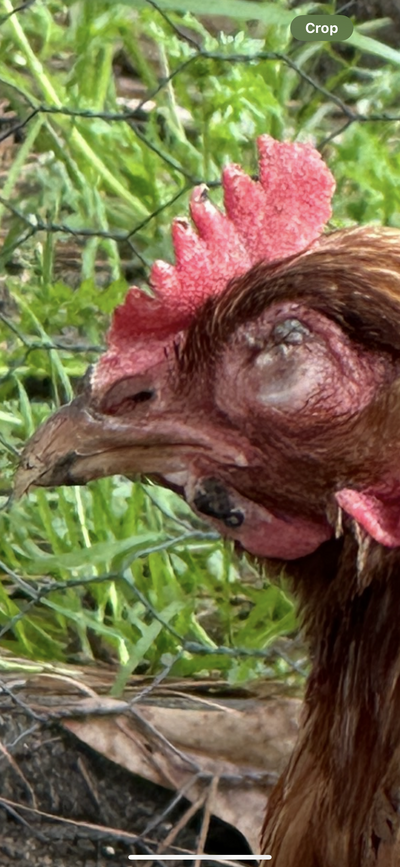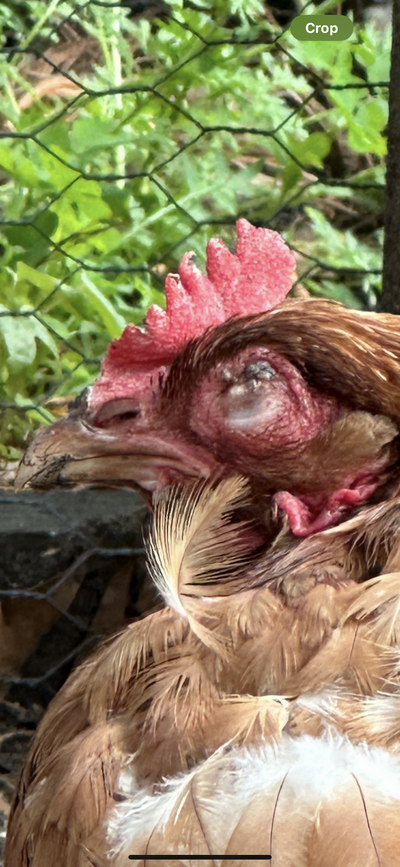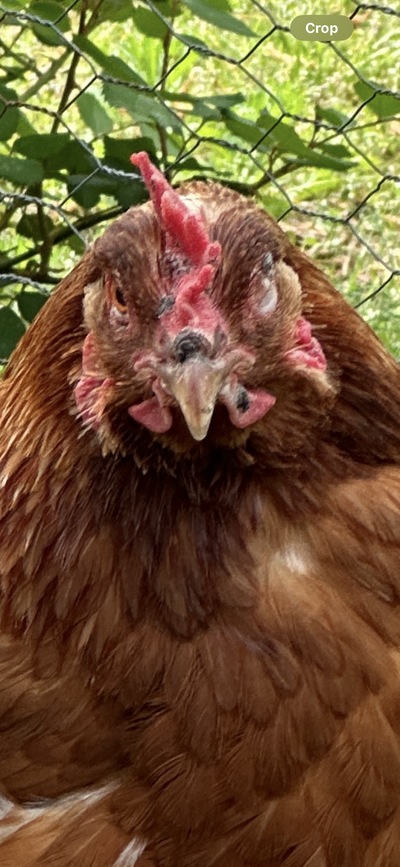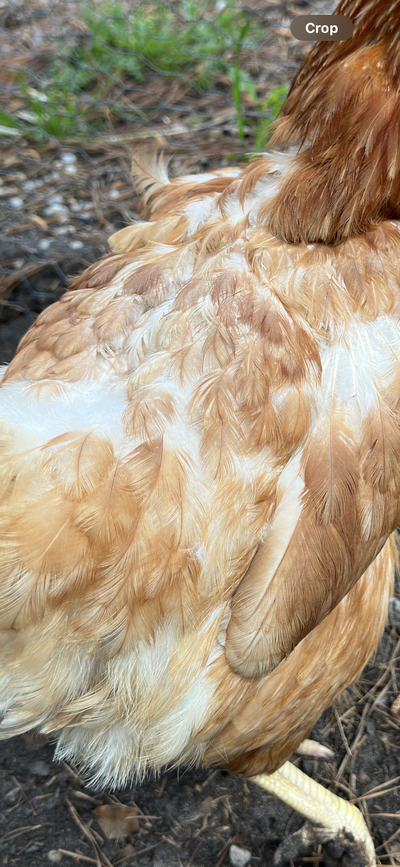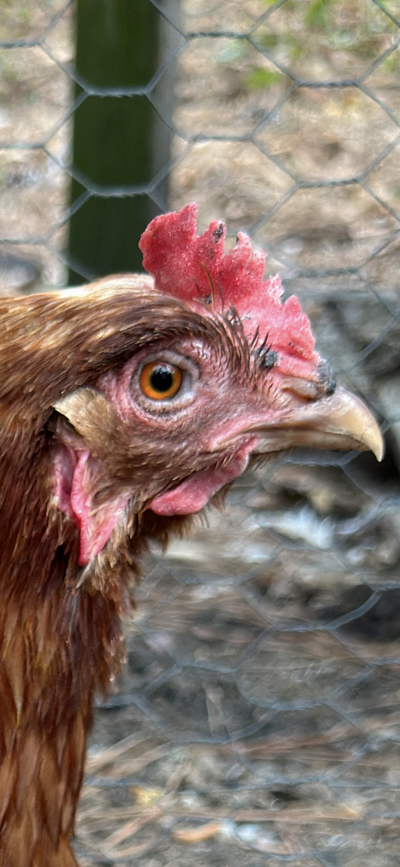DevGoddess
In the Brooder
Continuing from my last post, I've been just trying to make sure she's getting enough nutrition. Two days ago was scrambled eggs with crushed egg shells for protein and calcium, yesterday was mealworms and crickets for protein, and today was scrambled eggs with egg shells again. All three days she gobbled them up (on top of the regular laying feed).Ok, so on Sunday we bought two new Isa Browns that we were told are both 10mos old... One of them is in great shape, full plumage, bright red comb and wattles, drinking, eating, etc. The other one... she looks like she's been through it.
It was our first time buying chickens from anyone, and honestly it's probably on me for not speaking up more (severe social anxiety ftw). Her left eye is shut, looks kinda swollen, she has feathers all over her back missing, has black scab-looking things on her shut eye and over her comb.
She keeps sitting all scrunched down, but then sometimes she will get up and kick around, drink water (I mix electrolytes and probiotics into it for them..!), and eat food. The first evening of having them, they both went to town on the food like they were starving (even though they look and feel like a good weight), and she would chase the other hen from the food, so we thought maybe she just liked to fight? Lol? I've supplied them with oyster shell, some lettuce as a treat, and yesterday I made some scrambled eggs mixed with crushed shells from our other two chickens -- she absolutely went to town on it!
Yesterday I noticed tiny black specks on her fluff, and so I went searching on old posts here. I settled on maybe mites? Maybe lice? I went and got a 7gal cow feeder, peat moss, permethrin 10 concentrate, and chicken dust. I mixed some peat moss and chicken dust (and even a tiny amount of DE... I worry about their respiratory systems, but some people say do and others say don't?) into the cow feeder as a place to dust bathe.
This morning she and her sister/friend were kicking around! But then as soon as I went out there, she squatted down and became kinda despondent again. Her comb and wattles are pale, but her eye is looking a bit better. Last night I lifted up her back and vent feathers and tried to get some of the chicken dust in there to help.
I really just... don't know what to do. Her previous owner had a rather small piece of land with a few full-size goats, two smallish pigs, some ducks, and a whole bunch of hens with maybe 3 roosters. So maybe she got into it with the other hens and/or roosters?
I just want to help her.
Today she seems to be walking around a bit more, and her eye isn't as swollen. Her feathers even look a bit better? But that might be my imagination, tbh. She really does alternate between eating for a good while and then scrunching down and turning into a chicken loaf.
Her comb and wattles are still pale, but maybe not as much? I also got a few saline flushes that I'm going to use on her shut eye, but still don't know if I should put any kind of antibiotic ointment, or if it needs to be a specific kind.
Should I deworm her and her sister? Does ACV work for that, or do I need something stronger?





